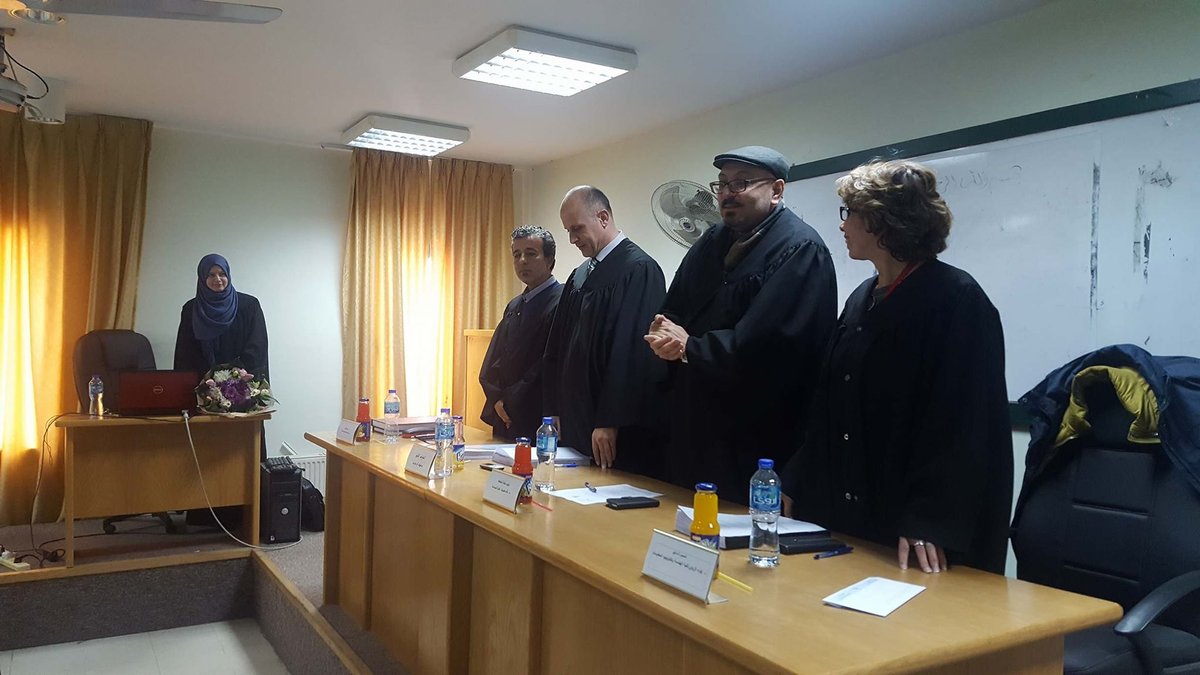
The Faculty of Graduate Studies awarded the researcher Sahar Mohammed a Master’s Degree in Architectural Engineering in response to her thesis entitled “Urban Sustainability in Palestinian Public Spaces Case Study: Central Square in Nablus city”.
In a city, public spaces are very important components in achieving urban sustainability, and they are even more important when it comes to densely populated cities; where these spaces are rare and limited as the case in Palestinian cities. There is a clear insufficiency of green areas, public parks and squares as well as sidewalks and street furniture in Palestinian cities, especially, city centers which are congested with vehicles that are associated accidents, noise and air pollution, instead of human communication. Besides the critical situation the Palestinian cities experience under the Israeli occupation, these reasons call for adopting a sustainable approach that guides the quality measurement of public spaces as a first step towards public spaces development that maintains the balance between the related aspects, and enhance their positive impacts and overcome their weaknesses with a view to improve their users’ experience.
The Martyrs’ Square, the main public space in Nablus city was chosen to be evaluated in this research as a case study with reference to sustainability criteria in public spaces. By means of the DELPHI method criteria were refined and customized to fit with the existing Palestinian public spaces reality and revealed the significant social role the Palestinian public space should deliver followed by the economic and the environmental respectively.
The implementation of the refined criteria had combined the subjective approach through a questionnaire that targeted the Martyrs’ Square users and the employees of Nablus municipality, with the objective approach for comparison. The results of this research showed that the Martyr’s Square was more economically achievable in comparison with the social and the environmental aspects, but still had the potential to play an influential role on environmental and social levels; as the results had shown some positive features of the square that require more attention and recruitment to optimize the desired benefits.
The research also manifested the main causes of the social and environmental decline in the Martyr’s Square and prioritized them as major causes including: traffic congestion, low level of cleanliness, lack of basic services and unavailability of designated spaces for holding events and practicing activities. In addition to sub-causes including: the high dB levels, polluted air, poor maintenance and Lack of environmental awareness promoting aspects. Consequently, few recommendations and proposals were presented to address the concluded issues.
On the other hand, the study positively revealed some opportunities that can be invested and promoted such as: the clear tendency by users towards the environmental friendly notions to be adopted within the square, the close municipality staff resemblance of users’ trends that can be beneficial in terms of representing users’ needs, and the high value of the Martyrs’ Square in expressing the city people and culture.
The committee consisted of: Dr. Khaled Qamhiyeh as a main supervisor and Chairman, Dr. Haytham Ratrout as a second supervisor, Dr. Salem Thwabeh as an external examiner and Dr. Zahra Zwawi as an internal examiner.
At the end of the session, the committee approved the success of the researcher and recommended her a Master’s degree.
عدد القراءات: 194





